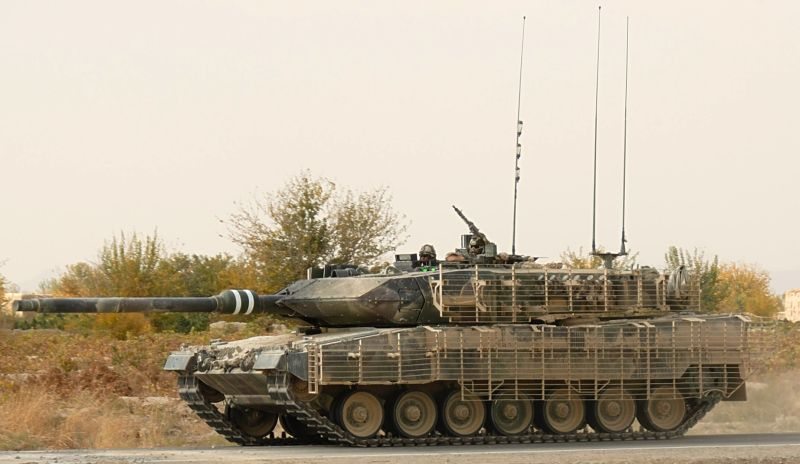Saudi Arabia is buying hundreds of tanks from Germany, a Saudi security source has said, in a multi-billion-euro deal that German opposition lawmakers have criticized as going against export guidelines.
A security source in Saudi Arabia said Monday that the oil-rich Gulf state would be buying 200 state-of-the-art Leopard tanks from Germany in a deal that has caused a political row in Germany.
“So far, Saudi has bought 44 tanks from Germany and in total wants to buy 200 tanks from Germany,” a security source, speaking on condition of anonymity, told the Reuters news agency.
The source declined to give a value for the purchase, saying it was a multi-billion euro deal involving the German companies Krauss-Maffei Wegmann and Rheinmetall.
The purchase follows a $93 billion stimulus package from Saudi King Abdullah that included extra support for police and security forces. The March handout was a response to unrest sweeping through the Arab world.
‘Hypocrisy’ allegations
Opposition lawmakers have criticized the deal as contravening German policy. “This is a blatant breach of weapons export guidelines,” said senior Green parliamentarian Katja Keul, noting that tanks came under the rubric of weapons that should not be exported to crisis-hit regions.
SPD General Secretary Andrea Nahles said the move went against a “consensus” in the Bundestag that had been built up over the past decades.
“Selling 200 Leopard tanks to Saudi Arabia is far from ethical foreign policy,” she said in front of the Bundestag on Monday. “The country is in the middle of a regional powder keg. You shouldn’t be giving out matches there.”
Nahles added that the deal exposed the German government’s support of the democracy movements in the region as nothing but “hypocrisy” – and that the legitimacy of Berlin’s foreign policy had been injured.
Since the beginning of the year, mass protests have resulted in regime change in Tunisia and Egypt, and uprisings have occurred in Libya, Yemen and Syria. In Saudi Arabia, minority Shi’ites staged demonstrations in the kingdom’s main oil-producing Eastern Province, but there have been no large-scale protests.
Awaiting confirmation
German newsmagazine Der Spiegel reported over the weekend that the German government’s security council – which includes over half of Chancellor Merkel’s cabinet – approved the deal last week.
Foreign Minister Guido Westerwelle, without referring to any specific details in the case or confirming the sale, said Monday that the council had held “responsible discussions.”
“These consultations are confidential; they are private. I therefore cannot give answers to any of your speculations and will not do this,” Westerwelle told the Bundestag.










